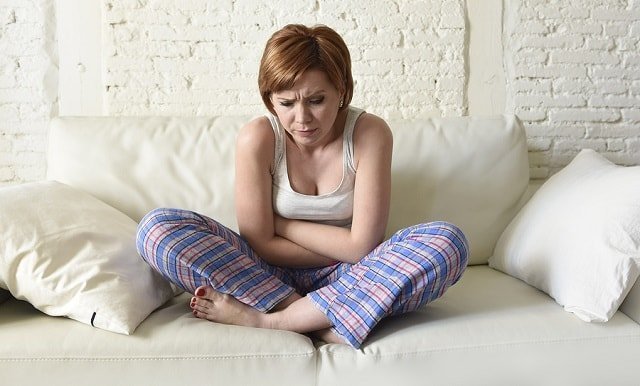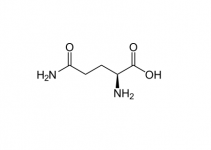 If you have a pretty regular menstrual cycle, then it is very likely that each month you ovulate around the same time. Ovulation is a time in which your body produces an egg.
If you have a pretty regular menstrual cycle, then it is very likely that each month you ovulate around the same time. Ovulation is a time in which your body produces an egg.
If you have had unprotected sex during your ovulatory time, then you have a possibility of becoming pregnant. However, if you don’t have sex or have protected sex, then your egg may be discarded and your cycle will continue the next month.
For some women, ovulation can be a pretty painful experience. The term Mittelschmerz was coined by physicians to describe the pain that occurs when a tiny follicle on your ovary ruptures to release your egg.
This pain may be crampy in nature or may be sharp and radiating. If this occurs, then don’t worry, you are normal.
Many women experience this pain and it just means that they can typically know their ovulatory cycle better than some other women.
Cramping after ovulation may occur as well. Depending on the day after ovulation, your cramping may mean different things. Keep reading to find out what cramping could mean for your body.
Day 1 or 2 After Ovulation
If you find yourself needing to take a bit of extra ibuprofen during day 1 or day 2 after ovulation then it may be due to a few different things.
First, your body may be releasing another egg and you may be experiencing the Mittelschmerz pain that we talked about above.
Or, your body may just be rupturing another follicle that accidentally stayed on your ovary throughout your entire cycle.
Follicles form each month on your ovaries. Each follicle should contain an egg, but sometimes your body has better ideas.
If follicles don’t contain eggs, or if they just don’t feel like rupturing, then they may stick around for a few of your cycles. At some point, these follicles will rupture and can cause pain.
Another reason you may be experiencing pain during day 1 or day 2 after ovulation is due to the egg migrating through your fallopian tubes.
As an egg moves through your tubes, it can actually trigger mild fallopian tube spasms to help it move along a bit quicker. These spasms may be painful and can cause abdominal cramps.
Day 3 or 4 After Ovulation
If you are still experiencing cramping 3-4 days after ovulation, then you might possibly be experiencing implantation cramping.
If an egg met a sperm and moved through your fallopian tubes and into your uterus, then your uterus has to begin preparing itself for an embryo to form.
If this occurs, then you will experience a rush of progesterone, which can lead to constipation, abdominal cramping, and bloating.
Most women don’t actually notice any cramping or feelings of uneasiness on days 3 through 4 after ovulation, because even if they were pregnant, then the rise in progesterone isn’t enough to cause major symptoms just yet.
You should avoid taking some anti-inflammatory medicine such as aspirin around time of conception because that might increase the risk of miscarriage [1].
Day 5 After Ovulation
Typically if you are going to experience pregnancy after ovulation, then you would begin feeling symptomatic on day 5 or later.
Day 5 is typically how long it would take for an egg and sperm to meet and then migrate to their final place in the uterus and form an embryo. While this process could occur on day 3 or day 4 after ovulation, it most often occurs on day 5 or later.
If you do become pregnant, then you may experience mild cramping due to the progesterone surge we mentioned above. On day 7 after ovulation, the embryo should be implanted into your uterus.
This may cause you to bleed slightly. Around one-quarter of participants in a study reported bleeding in their first trimester [2], so don’t get alarmed if you notice spotting before your next period is supposed to come.
When to Take Pregnancy Test
If you are actively trying to get pregnant and notice some of the above symptoms on day 5 or after ovulation then you may want to invest in a few pregnancy tests. You won’t be able to take a test until after you miss your first period.
Read the instructions on whatever test you choose and follow them perfectly to get the best results. If negative, then keep track of your period and ovulation cycles in order to try again the next month.
References
- BMJ 2003; 327 doi: https://doi.org/10.1136/bmj.327.7411.368 (Published 14 August 2003)Cite this as: BMJ 2003;327:368
- Patterns and predictors of vaginal bleeding in the first trimester of pregnancy https://www.ncbi.nlm.nih.gov/pmc/articles/PMC2884141/




This blog is so informative!!!! It breaks things down down to when you completely reads this article you will have a better understanding of what YOU are experiencing.
Thankyou👍
Thank you for the amazing comments! We appreciate it!
i did my mestra period on 17 of May when would my ovulation be?
Hi Purity, your ovulation was between the 27th through the 31st. You can check your ovulation dates at the following link for your next period and ovulation dates: https://womanjunction.com